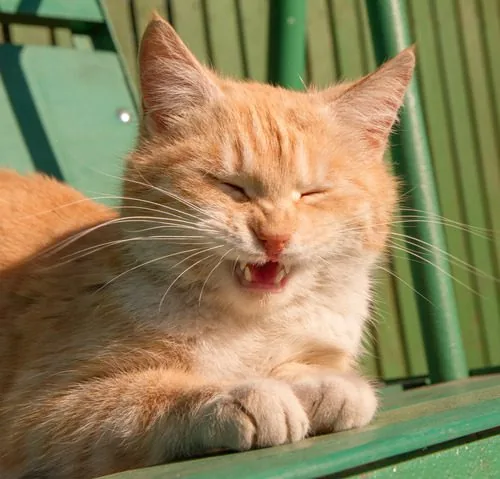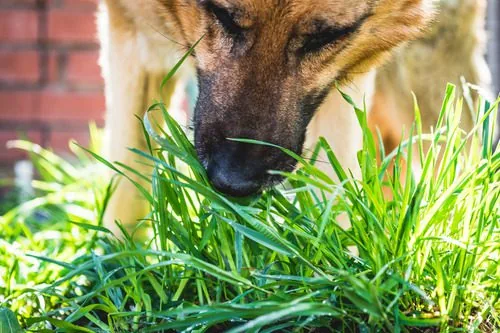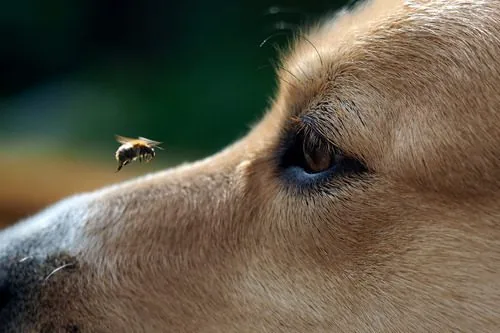6 Possible Causes for Your Cat’s Sneezing
Cats are known for their curious and playful nature, but when your cat starts sneezing frequently, it can be a cause for concern. Sneezing in cats can be due to various reasons, ranging from minor irritants to more serious health conditions. Understanding the potential causes can help you recognize when it’s time to seek veterinary care. In this blog, we will explore six possible causes for your cat’s sneezing to provide you with a comprehensive understanding of what might be affecting your feline friend. If your cat is experiencing persistent sneezing, please call Boughton Square Animal Clinic in Bolingbrook, Illinois, at (630) 759-0093 or make an appointment.

1. Respiratory Infections
One of the most common causes of sneezing in cats is respiratory infections. These can be caused by various pathogens, including viruses, bacteria, and fungi.
Viral Infections
Cats are particularly susceptible to viral infections such as feline herpesvirus (FHV) and feline calicivirus (FCV). These viruses are highly contagious and can cause symptoms such as sneezing, runny nose, and eye discharge. FHV is known for causing upper respiratory issues, while FCV can lead to oral ulcers in addition to respiratory symptoms.
Bacterial Infections
Bacterial infections, often secondary to viral infections, can also cause sneezing. Common bacteria involved include Bordetella bronchiseptica and Chlamydophila felis. These infections may cause additional symptoms like coughing, fever, and lethargy.
Fungal Infections
Though less common, fungal infections such as aspergillosis can also lead to sneezing in cats. Fungal infections typically affect the nasal passages and can be more challenging to treat.
2. Allergies
Just like humans, cats can suffer from allergies that can lead to sneezing. Allergies in cats can be caused by a variety of environmental factors.
Environmental Allergies
Common allergens include pollen, mold, dust mites, and smoke. Cats with environmental allergies may also show signs of itching, skin irritation, and watery eyes.
Food Allergies
Although less common, food allergies can also cause respiratory symptoms, including sneezing. Identifying and eliminating the offending food from your cat’s diet can help alleviate symptoms.
3. Foreign Bodies
Cats are naturally curious creatures, and sometimes their exploration can lead to foreign bodies becoming lodged in their nasal passages.
Nasal Obstructions
Small objects like grass, seeds, or even tiny insects can get stuck in a cat’s nose, causing irritation and sneezing. In some cases, these objects can be dislodged naturally through sneezing, but persistent sneezing may require veterinary intervention to remove the obstruction.
Dental Problems
Interestingly, dental issues can also lead to sneezing in cats. Infections or abscesses in the upper teeth can sometimes extend into the nasal passages, causing sneezing and nasal discharge.
4. Irritants and Pollutants
Cats can be sensitive to various irritants and pollutants in their environment, leading to sneezing.
Household Irritants
Common household irritants include cleaning products, perfumes, cigarette smoke, and even certain types of litter. Ensuring your home is well-ventilated and using pet-safe cleaning products can help reduce your cat’s exposure to these irritants.
Outdoor Pollutants
Outdoor pollutants such as car exhaust, industrial emissions, and pesticides can also cause respiratory irritation in cats. If your cat spends time outdoors, minimizing their exposure to polluted areas can help reduce sneezing episodes.
5. Chronic Conditions
Certain chronic conditions can manifest with sneezing as a symptom. These conditions often require ongoing management and veterinary care.
Chronic Rhinitis
Chronic rhinitis is an inflammation of the nasal passages that can be caused by unresolved infections, allergies, or other irritants. Cats with chronic rhinitis may exhibit persistent sneezing, nasal discharge, and breathing difficulties.
Asthma
Asthma in cats can cause respiratory symptoms, including sneezing, coughing, and wheezing. Asthma attacks can be triggered by allergens, stress, or environmental changes and require medical management to control symptoms.
6. Tumors or Polyps
Though less common, growths such as tumors or polyps in the nasal passages can cause sneezing in cats.
Nasal Polyps
Nasal polyps are non-cancerous growths that can develop in the nasal or ear passages. These growths can obstruct airflow and cause sneezing, nasal discharge, and difficulty breathing.
Nasal Tumors
Nasal tumors, which can be benign or malignant, may also lead to sneezing and other respiratory symptoms. Early detection and treatment are crucial for the best possible outcome.
If your cat is experiencing persistent sneezing, it is important to consult with a veterinarian to determine the underlying cause and appropriate treatment. Boughton Square Animal Clinic in Bolingbrook, Illinois, is here to help. Call us at (630) 759-0093 or make an appointment to ensure your cat receives the care they need.
When to Seek Veterinary Care for Your Sneezing Cat
Understanding the potential causes of your cat’s sneezing can help you recognize when it’s time to seek veterinary care. Whether it’s due to respiratory infections, allergies, foreign bodies, irritants, chronic conditions, or growths, addressing the issue promptly can help ensure your cat remains healthy and happy. If you have concerns about your cat’s sneezing, don’t hesitate to reach out to Boughton Square Animal Clinic at (630) 759-0093 or make an appointment. Our team is dedicated to providing the best care for your feline companion.
Recent Posts
Why is My Dog Eating Grass?
Why is My Dog Eating Grass? Dogs are known for their curious behaviors, and one that often…
Can Dogs Eat Marshmallows?
Can Dogs Eat Marshmallows? Marshmallows are a popular treat for many people, but pet owners often wonder,…
Can Dogs Get Sunburn?
Can Dogs Get Sunburn? As summer approaches and the days get longer, many pet owners look forward…
Dog Dehydration: Symptoms, Treatment and Prevention
Dog Dehydration: Symptoms, Treatment and Prevention Dehydration in dogs is a common but often overlooked condition that…
What To Do If Your Dog is Stung by a Bee
What To Do If Your Dog is Stung by a Bee As warmer weather arrives and outdoor…
About Boughton Square Animal Clinic
Since 1979, Boughton Square Animal Clinic has served Bolingbrook, IL and surrounding communities as both a veterinary care provider and a devoted partner in treating your animal family members for life.






